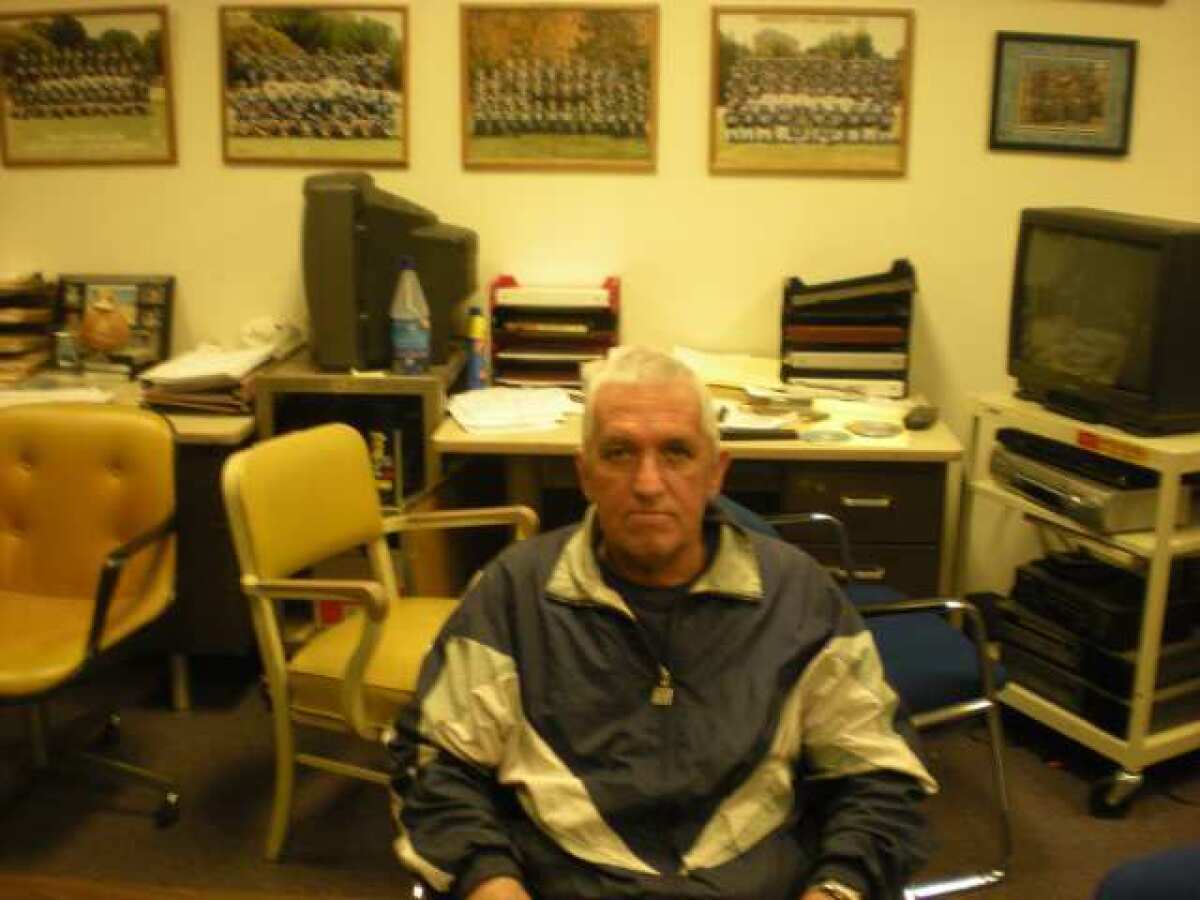Cunningham comes back

Mark Cunningham has been the head football coach at University High for 25 years. A quarter century of battles on the gridiron are miniscule in comparison to his battle to stay alive. Cunningham was diagnosed with throat cancer, which caused him to take a step back from the game he has devoted his life to, in order to focus more on himself. A return to the sidelines now breathes normalcy back into his life.
It’s safe to say, he’s a different man. One may not see his intensity on display, but his advice to anyone with a cancer diagnosis shows that Cunningham’s fiery personality hasn’t faded one bit.
“Cancer has become a disease that is not an automatic death sentence; it’s a fight,” he said. “You do what the doctors ask you to do, and you fight the sucker.”
Fight is what Cunningham did. His love for the game helped him.
Cunningham’s football-filled existence, starting with Pop Warner in 1963, to now being a highly respected coach, has been just that: football day in and day out.
“I’ve been involved with football since 1963, in Pop Warner, and been involved every August from ’63 on. This was the first time I didn’t participate in August and missed the beginning of the year,” Cunningham said.
In every sport, fans refer to players with great feats of longevity as “iron men.” In baseball, it’s Cal Ripken Jr., in football, Brett Favre. Coaches tend to get lost in this conversation, but Cunningham can be seen as the iron man of high school coaching.
He was put to the test when he was diagnosed with throat cancer, and it caused him to evaluate what is important in life.
“I thought it was going to be worse than it was, but for the first time in my life I realized I needed to take care of myself, instead of worry about other people,” he said. “It was a double-edged sword, from the standpoint that I really missed it, but I knew in order to continue to enjoy more in August and the beginning of the season, I’d have to take care of myself.”
For the first time in his life, Cunningham put football in the backseat, and focused on himself.
Like every down played in during the course of a game, Cunningham battled the disease, step by step, until he felt he was fully capable of making a return to coaching. It wasn’t an easy decision.
“There was a slight hesitation, because I wanted to make sure I was healthy enough,” he said. “It wouldn’t do me any good to come back and not be able to perform my duties, and do what’s right for the kids.”
During Cunningham’s absence, University had a different face patrolling the sidelines. Assistant coach Kevin McCaffery inherited a job that proved to be difficult in Cunningham’s opinion.
“It was an impossible job to take over, only because I’ve been at this school for 25 years, I run things my way, and I’m the person who does a lot of the things in the program,” Cunningham said. “Because there’s not a lot of people doing the things that I do, he had to figure out what those things were, and it was tough, it was really tough.”
Despite the pressure of trying to fill the shoes that have been leading the boys of fall at University for the last 25 years, McCaffery stepped up to the challenge, and Cunningham was the first to notice.
“He did a great job,” Cunningham said. “I couldn’t have asked for anyone who was going to be more dedicated, put in more time, and try to do the best possible job they were capable of doing than him.”
McCaffery’s tenure as head coach lasted four games, only because it is difficult to keep Cunningham away from football for too long. His long awaited return came Oct. 15 in a game against Irvine. University lost to Irvine, 13-2, but the support and well-wishes Cunningham received from his players, their parents and his fellow colleagues made the loss a little easier to take.
“[The support] has been unbelievable. I’m blessed,” Cunningham said. “I’m blessed with this community. I’m blessed with the parents that I’ve been involved with, and I’m blessed with the administration I have at the school. I couldn’t be happier.”
University’s record has now fallen to 1-7, but Cunningham made it a point to tell his players that even though their head coach was back, they would have to keep working to return to winning form.
“I told them that my coming back was no magic bullet to anything,” he said. “I just wanted them to enjoy their season, and that I was here to help them enjoy their season, regardless of the wins and losses.”
Cunningham has fought off the cancer, but since his return, he has noticed a change in the way he coaches.
“I’m not yelling, I can’t yell.” he said.
Football is a very intense sport that is filled with emotion. There are a lot of factors throughout a game that may cause one to lose control. Cunningham has had to learn to keep his cool, even in the most heated moments of the game.
“I’m much more relaxed,” he said. “I have to be under control because the damage done by the radiation, and my energy levels are just a lot lower. I’m in much more control. I am still enjoying myself, but it’s pretty tough because I’m a pretty emotional guy.”
Cunningham may have to collar his emotions, and keep his voice down, but his devotion to football, University and especially his players brought him back to the sideline.
His battle against cancer adds even more to his iron man qualities, and eventually many will see the original Cunningham leading his players onto the field.